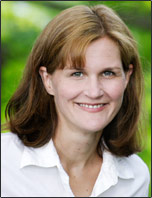Many variables we want to measure just can’t be directly measured with a single variable. Instead you have to combine a set of variables into a single index.
But how do you determine which variables to combine and how best to combine them?
Exploratory Factor Analysis.
EFA is a method for finding a measurement for one or more unmeasurable (latent) variables from a set of related observed variables. It is especially useful for scale construction.
In this webinar, you will learn through three examples an overview of EFA, including:
- The five steps to conducting an EFA
- Key concepts like rotation
- Factor scores
- The importance of interpretability
Note: This training is an exclusive benefit to members of the Statistically Speaking Membership Program and part of the Stat’s Amore Trainings Series. Each Stat’s Amore Training is approximately 90 minutes long.
About the Instructor

Karen Grace-Martin helps statistics practitioners gain an intuitive understanding of how statistics is applied to real data in research studies.
She has guided and trained researchers through their statistical analysis for over 15 years as a statistical consultant at Cornell University and through The Analysis Factor. She has master’s degrees in both applied statistics and social psychology and is an expert in SPSS and SAS.
Not a Member Yet?
It’s never too early to set yourself up for successful analysis with support and training from expert statisticians.
Just head over and sign up for Statistically Speaking.
You'll get access to this training webinar, 130+ other stats trainings, a pathway to work through the trainings that you need — plus the expert guidance you need to build statistical skill with live Q&A sessions and an ask-a-mentor forum.
Today, I would like to briefly describe four misconceptions that I feel are commonly perceived by novice researchers in Exploratory Factor Analysis:
Misconception 1: The choice between component and common factor extraction procedures is not so important.
In Principal Component Analysis, a set of variables is transformed into a smaller set of linear composites known as components. This method of analysis is essentially a method for data reduction.
(more…)
I recently gave a free webinar on Principal Component Analysis. We had almost 300 researchers attend and didn’t get through all the questions. This is part of a series of answers to those questions.
If you missed it, you can get the webinar recording here.
Question: How do we decide whether to have rotated or unrotated factors?
Answer:
Great question. Of course, the answer depends on your situation.
When you retain only one factor in a solution, then rotation is irrelevant. In fact, most software won’t even print out rotated coefficients and they’re pretty meaningless in that situation.
But if you retain two or more factors, you need to rotate.
Unrotated factors are pretty difficult to interpret in that situation. (more…)
Many variables we want to measure just can’t be directly measured with a single variable. Instead you have to combine a set of variables into a single index.
But how do you determine which variables to combine and how best to combine them?
Exploratory Factor Analysis.
EFA is a method for finding a measurement for one or more unmeasurable (latent) variables from a set of related observed variables. It is especially useful for scale construction.
In this webinar, you will learn through three examples an overview of EFA, including:
- The five steps to conducting an EFA
- Key concepts like rotation
- Factor scores
- The importance of interpretability
Note: This training is an exclusive benefit to members of the Statistically Speaking Membership Program and part of the Stat’s Amore Trainings Series. Each Stat’s Amore Training is approximately 90 minutes long.
About the Instructor

Karen Grace-Martin helps statistics practitioners gain an intuitive understanding of how statistics is applied to real data in research studies.
She has guided and trained researchers through their statistical analysis for over 15 years as a statistical consultant at Cornell University and through The Analysis Factor. She has master’s degrees in both applied statistics and social psychology and is an expert in SPSS and SAS.
Not a Member Yet?
It’s never too early to set yourself up for successful analysis with support and training from expert statisticians.
Just head over and sign up for Statistically Speaking.
You'll get access to this training webinar, 130+ other stats trainings, a pathway to work through the trainings that you need — plus the expert guidance you need to build statistical skill with live Q&A sessions and an ask-a-mentor forum.


